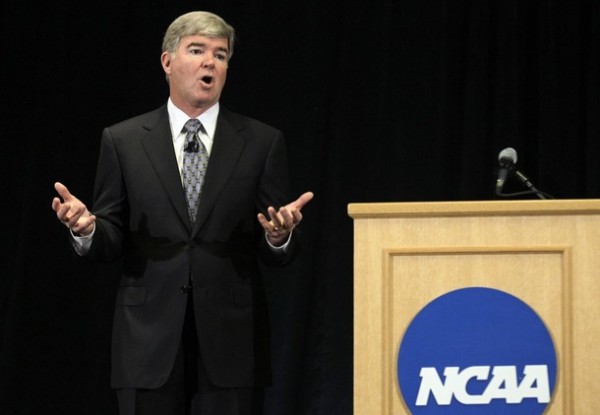Posted by Chris Johnson on August 8th, 2012
Christopher Johnson is an RTC Columnist. He can be reached @ChrisDJohnsonn.
Since 1992, thanks to the Federal Professional and Amateur Sports Protection Act, legal sports betting in any form has only existed in four states: Montana, Oregon and Delaware have sports lotteries, while Nevada as everyone knows enjoys an entire sports booking industry. New Jersey, home to one of the nation’s most popular casino hot spots in Atlantic City, was granted a one-year time frame between 1993-94 to opt into the exclusive group, but failed to act and thus missed out on the opportunity to become the fifth member state. Governor Chris Christie sought to make up for his state’s inaction last January when he spearheaded the passage of a new law that violated the 1992 Act by legalizing gambling in his state. Christie was essentially challenging a federal law with full knowledge that a long and enduring legal battle would be waged to prevent the new state legislation. He acknowledged as much in May at a press conference in Atlantic City, saying, “If someone wants to stop us, then let them try to stop us. Am I expecting there may be legal action taken against us to try to prevent it? Yes. But I have every confidence we’re going to be successful.”

The NCAA is one of five sports league governing bodies involved in a class-action lawsuit against the state of New Jersey and its groundbreaking gambling law (Photo Credit: AP Photo/Michael Conroy)
Christie has met his day of reckoning. On Tuesday the NCAA and four governing bodies of North America’s major sports – the NHL, NBA, NFL and MLB – filed a lawsuit against New Jersey on the grounds that the state’s legislation legalizing sports gambling within its borders represents a direct threat to “the character and integrity” of sporting events and a “clear and flagrant” violation of federal law. This development comes as no surprise to Christie. He knew full well upon signing the state law of the inevitable flurry of lawsuits that would ensue, and so the governor reiterated his stance after catching word of the organizations’ actions. “I don’t believe that the federal government has the right to decide that only certain states can have sports gambling. On what basis?” he said.
Read the rest of this entry »
| legal matters
| Tagged: Chris Christie, Gambling lawsuit, mlb, nba, ncaa, new jersey, nfl, NHL
Share this story











































